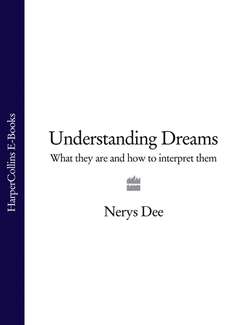Читать книгу Understanding Dreams: What they are and how to interpret them - Nerys Dee - Страница 22
the purpose of sleep
ОглавлениеFor centuries the purpose of going to sleep was thought to be solely to rest the physical body. Having worked hard during the day, it needed to relax, so we went to sleep. This reasoning fell into disrepute when it was realised that resting while awake rejuvenated muscles in much the same way as in sleep. Furthermore, the body did not lie still during sleep; a series of time-lapsed photographs revealed that the body makes frequent movements – turning over as often as twenty times in a night, and stretching continually – in order to exercise the muscles, not to relax them.
Having realised this, it was decided it was not physical rest we needed during sleep after all, but psychological rest. The brain, the most important and active organ in the body, had, so it was thought, to be ‘switched off’, during sleep. This assumption again proved wrong. When it was possible to measure electronic impulses from the brain, it was found to be more active during sleep than when awake. Experiments involving sleep deprivation revealed unexpected results. By waking sleeping subjects throughout two consecutive nights it was discovered that, through lack of sleep, they were mentally disturbed and disorientated. Some years ago a US disc jockey named Peter Tripp decided to stay awake for 200 hours to raise money for charity. At the beginning of this sleepathon he was in good spirits and broadcast daily from Time Square. Later, his speech became slurred and towards the end of this stint it was incoherent. He then became paranoic, believing someone was drugging his food to make him go to sleep. He completed his 200-hour sleepless marathon and the only treatment he needed to restore his balance was a good, long sleep.
From this, and other experiments, it was discovered that lack of sleep harms both the body and the mind. If, then, sleep rests neither the body nor the mind, what, indeed, is it for? The advent of space travel gave scientists further opportunities to investigate this thing called sleep. They proved once again that resting the body is not the specific function of sleep. They also found that prolonged periods of isolation decreased the need for sleep. In other words, the less interaction there is between people, and the less stimuli received from external contact, the less sleep is needed.
Older people who have difficulty in sleeping may well be suffering from nothing more than lack of contact with others and deprivation of external stimuli. Apparently, we have a sleep control centre in the brain stem, at the base of the brain, associated with activity during wakefulness. When it is overloaded, it produces feelings of fatigue and eventually sleep. Lack of stimuli from the outer world, while causing drowsiness and disinterest in life, is not always sufficient to trigger this mechanism into sleep. Hence the problem of insomnia in institutionalised geriatrics and the reason why 95% of them are given sleeping tablets. Boredom and lack of stimuli may also account for insomnia in younger people. The paradox, however, is that over-stimulation causing anxiety also produces insomnia.
